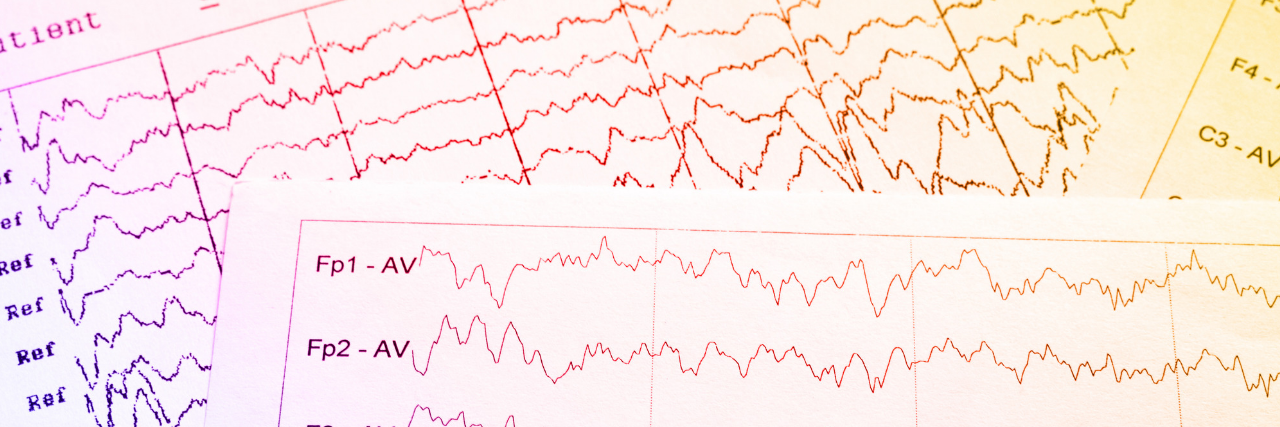Recent Brain Study Shows How Science Helps Prove You’re Not ‘Making Up’ Your Mental Illness
New findings published in the journal Cell suggest certain brainwave activity (or communication) between the amygdala and the hippocampus may correspond to depression and anxiety. The study, conducted by researchers at the University of California at San Francisco (UCSF), pointed out not just how interesting their discovery is, but how powerful these results can be to show you’re not “making up” a mental health condition.
UCSF scientists built on previous research that shows how the brain plays a role in mood disorders and anxiety. They did this by analyzing results from EEGs (electroencephalography) placed on and inside the brain to monitor brain waves in patients with epilepsy. Over the course of seven to 10 days, all 21 study participants wore EEGs and self-reported their moods. When the researchers compared the self-reports to the results from the EEGs, they noticed changes in the brainwaves (communication) between the amygdala and the hippocampus.
Both the almond-shaped amygdala and the hippocampus are part of the limbic system, which is sometimes characterized as the “feeling and reacting brain.” The amygdala is what helps us recognize danger, which has long been tied to anxiety, our response to perceived danger. It’s also important for memories, which tend to be strongly related to emotions. The hippocampus helps form and store memories, as well as attach emotions and sensory information to them.
Researchers identified that more than half of study participants who already had more anxiety showed distinct communication patterns between their amygdala and hippocampus. These same participants with a strong and active link between these two regions of the brain also reported a depressed mood, which was shown on the EEG results.
The researchers hypothesized a lower mood could be related to more emotionally charged memories in those who experience higher levels of anxiety. Co-lead author of the study, Vikaas Sohal, a psychiatrist and neuroscientist at UCSF, told The Mighty more about what they found in their research:
The hippocampus and amygdala have long been implicated in memory and negative emotion, respectively. So it may be that when you are feeling down, you are thinking about a sad memory, or that feeling bad triggers the recollection of sad memories. The idea that negative emotions and memory are linked is a long-standing idea in psychiatry and psychology, but we may have found the brain networks that are responsible for this link.
The new study’s finding is significant because though researchers have long known the hippocampus and amygdala are related to anxiety and depression, this may be the first time scientists have pinpointed the exact brain networks responsible for this link to mental illness.
However, if you live with a mental health condition, Sohal said this study further identifies a biological reason for mental illness that could help reduce the fear and stigma surrounding mood disorders.
“I think the most important thing is that it means when you are feeling down or anxious, it’s not just something you are imagining or ‘making up.’ These feelings seem to reflect specific, measurable, quantifiable patterns of brain activity,” Sohal said.
Sohal added in a statement, “It’s really powerful to say to subjects that when you’re feeling down it’s due to communication between these two brain structures at a particular frequency. It helps everybody think about these things in a way that is destigmatizing and empowering.”
Photo via Getty Images/Iryna Imago

